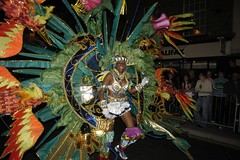Although I have heard and read similar ideas before, it was still appalling to hear cyber-bullying being described as ‘distressing’ in the tone of voice one would use for spilt tea, and tales of beatings and broken teeth being brushed aside.
I was driving back up country and listening to Tuesday’s Woman’s Hour. The guest was Helene Guldberg from the Open University, who had recently published views that anti-bullying initiatives were undermining children’s ability to acquire conflict management skills for later life.
While I share her concerns that we tend towards a nanny society, I cannot imagine that she would feel that being mugged in the streets was helping her to learn how to live in a world where bad things happen, yet she, and I know she voices a common prejudice in educational theory, feels that violence that would be criminal against an adult is somehow acceptable for a child. Evidently it is all childhood innocence and any sense of cruelty is simply our adult projections.
In her own moment of exquisite cruelty, Guldberg responded to an email from a woman in her 50s, who felt her life permanently scarred by school bullying. The woman found it hard to trust anyone, because the instigator of the bullying had been someone whom she thought to be her best friend. In the classic ‘blame the victim’ fashion, Guldberg explained that this was simply the fact that if we tell children that bullying will scar them for life, then it will. The woman’s pain was not anything to do with the bullying when she was at school, but effectively self-inflicted … this despite the fact the 35 years ago no-one was telling children that bullying would do harm, as the universal view then was exactly what Guldberg now expounds.
Hearing all this, I recall my own school days and in particular infant school where most of the boys belonged to a class ‘gang’. Now I would have been perfectly happy if our class gang had fought other classes – I was never one of life’s pacifists. However, the purpose of the class gang was not to fight other gangs, but to pick on some member of the class, often one of the peripheral members of the gang if there was no-one else. Now I should explain I was not of a particularly high moral frame; however, I was a romantic and had been brought up with tales of King Arthur and watching Robin Hood on television; so the idea of picking on the weak was against everything I believed in. I refused to join in and so became, disproportionately, the one picked on.

What is particularly striking in retrospect is that those at the heart of the gang leadership, and so of course never picked on by the gang, were the more ‘respectable’ members of the class, the ones the teacher would ask to look after the class if they had to leave. As far as I can gather, this was not out of some misguided attempt to reform the bullies through responsibility, but purely ignorance. The teachers were aware of the ‘naughty’ children and those that the gang leaders egged into fighting and hurting others, but not those who seemed on the surface to be the good ones.
This blindness seems odd, but appears to be common. I recall when our children were small (and home educated), someone telling us about the school their son was at, how good it was and the excellent social environment, but seemed oblivious to the fact that each day he came back with items from his school bag missing or broken and that he kept asking to be picked up from school rather than walk the short distance home.
Later in high school I recall the dynamics were different; there the bullies tended to be the more obvious candidates: big, tough and often less advantaged. For different reasons I often found myself at the rough end of things; I would try to talk myself out of trouble (those conflict management skills!), but in the end would never back down, no matter the odds. One of my front teeth is still a little black from a head butt, but today, with knives everywhere, I wonder whether I would have acted the same, or if I had what the consequence would be.
In some sense, in both earlier and later school, I ‘chose’ to be one of the victims, and perhaps as it had an, albeit over romanticised, ethical aspect one could say that it may have strengthened me. However, most of the victims were not in that position: the less clever children, the first Asian boy in school, the brothers who always had snuffles and so were labelled ‘snotty’, and when my father had died I still recall the taunts of ‘old grey hairs’. Those who were weaker or simply cannier learnt to appease and submit, but were consequently far more likely to be repeat victims than someone who, even if hurt, would not be cowed. I am sure the boy I knew in high school, who was learning these important life skills of appeasement and giving in to intimidation, would have developed a rounded and resilient attitude in his later life if he had not committed suicide first.
The presenter, Jane Garvey, and another guest Claude Knights from anti-bullying charity ‘Kidscape‘ did an excellent job in challenging Guldberg’s views, but she seemed completely immune to any evidence. However, I don’t recall anyone questioning the life skills learnt by the bullies themselves. The tough but ‘respectable’ boys, who were at the centre of the gangs in early school, are just those who are likely to have become policemen or soldiers. What did they learn? Might is right?
And the same attitudes are prevalent in more professional settings; some years ago a team at KPMG were helping us in our search for continued funding for aQtive, our dot.com company. All the people there were wonderful to us, but looking at their dealings with one another I was often physically sickened by the combination of fawning to superiors and bullying of juniors that I saw. All good lessons learnt in public school.
For that matter the circle completes and even some teachers repeat the lessons they learnt at school. I still recall the grin on our lower-school headmaster’s face during school assemblies, when he would take some child who had committed a misdemeanour, grab him or her by the shoulders and then, in front of everyone, violently shake them in synchrony with his words.
It is not only the victims of school bullying that are the victims; the bullies themselves are victims of those like Guldberg who tell them it is alright to misuse power – and in the deeper weight of things it is perhaps more terrible to learn to be cruel than to learn to be afraid.
 I had forgotten it, but I can see it now, patterns upon light green woodchip ceiling paper, as clear as the sky and grass before me where I am sitting now, and mornings with tea from the Goblin Teasmade and Dad bringing up marmalade-laden toast cut in triangles before, workman-fashion, he sipped hot tea from the saucer.
I had forgotten it, but I can see it now, patterns upon light green woodchip ceiling paper, as clear as the sky and grass before me where I am sitting now, and mornings with tea from the Goblin Teasmade and Dad bringing up marmalade-laden toast cut in triangles before, workman-fashion, he sipped hot tea from the saucer.


